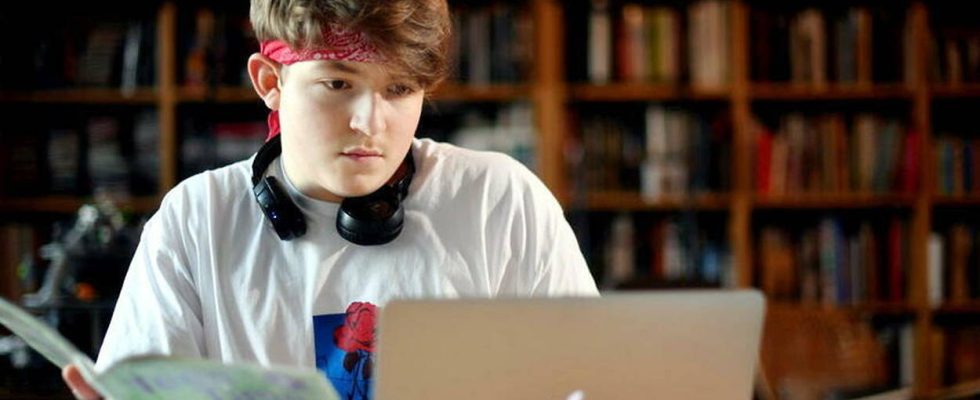A report details the consumption of these drugs, which increased by half among minors between 2014 and 2021. That of sleeping pills has more than doubled.
By VP with AFP
© Alexandre MARCHI / MAXPPP / PHOTOPQR/L’EST REPUBLICAIN/MAXPP
Published on
Subscriber-only audio playback
DAre we given too many antidepressants or anxiolytics to French children? The controversy has been emerging for several weeks, fueled by a highly publicized report. If psychiatrists are unanimous in noting the dramatic inadequacy of the supply of care, some are afraid to stigmatize effective treatments. “There is a kind of excitement around “Oh, there, we are drugging our poor kids”, regrets to Agence France-Presse the psychiatrist Ludovic Gicquel, on behalf of the French Society of Psychiatry of children and adolescents (SFPDEA).
The subject is the subject of extensive media attention, following the publication in March of a report by a body dependent on the French government, the High Council for the Family, Childhood and age (HCFEA). Its authors noted “a considerable increase in the consumption of psychotropic drugs in children” over the past ten years. In detail, the consumption of antidepressants has increased by half among minors between 2014 and 2021 and that of sleeping pills has more than doubled. The report also finds that many of these treatments are prescribed outside of the specific use for which they are approved by health authorities.
But, if these data are not questionable, the report has been the subject of strong criticism from researchers and doctors, for whom it excessively stigmatizes the use of drugs. “The report is dependent,” said public health researcher Mickaël Worms-Ehrminger, a specialist in mental health issues. Critics point in particular to an unequivocal interpretation of the increase in prescriptions. They point out that it may also be linked to better diagnosis of mental disorders. As for prescription beyond regulatory indications, critics believe that these indications are often too restrictive compared to what the scientific literature indicates.
READ ALSOThe placebo, it’s not wind
A lack of care
These debates largely cover old divisions within French psychiatry. Critics of the report accuse it of being biased in favor of a psychoanalytical tradition hostile to other approaches, notably neuroscientists. It is the reflection of “a ‘sectarian’ practice of anti-drug psychoanalysis, which is very French”, judge Mickaël Worms-Ehrminger. In fact, the experts interviewed by the report are largely researchers skeptical of a predominantly biological approach to mental disorders.
Still, in the reality of medical practice, the divisions are not so marked. The majority of psychiatrists agree that a psychotropic drug can be a useful tool for treating a child, but that it should not be immediately considered. This is the message that the authors of the report claim to have wanted to convey.
This “does not question the usefulness of drugs or prescriptions, but pleads for a rebalancing”, explained the HCFEA in a press release in early April. In fact, some psychiatrists are not as virulent against the report as against the coverage made by certain media, which they criticize for not trying to understand the root causes of excessive prescription.
READ ALSO“Nearly 1 in 6 adolescents is affected by a mental or psychiatric disorder”
“The risk is the amalgam”
The psychiatrists interviewed by Agence France-Presse, like the HCFEA, underline the dramatic situation in which the parents of a child suffering from a mental disorder find themselves: it often takes many months to find a psychiatric consultation, not to mention regular follow-up with adequate psychotherapy.
“At some point, when you review all the non-drug options and they are not available, you deal with the most urgent and the teenager leaves with a prescription for medication,” explains Ludovic Gicquel, for whom these prescriptions are sometimes the result of general practitioners who are helpless in the face of an emergency situation.
But “parents should above all not have the impression that, as soon as a doctor prescribes a psychotropic drug for their child, it is not justified: the risk is the amalgam”, he concludes.
